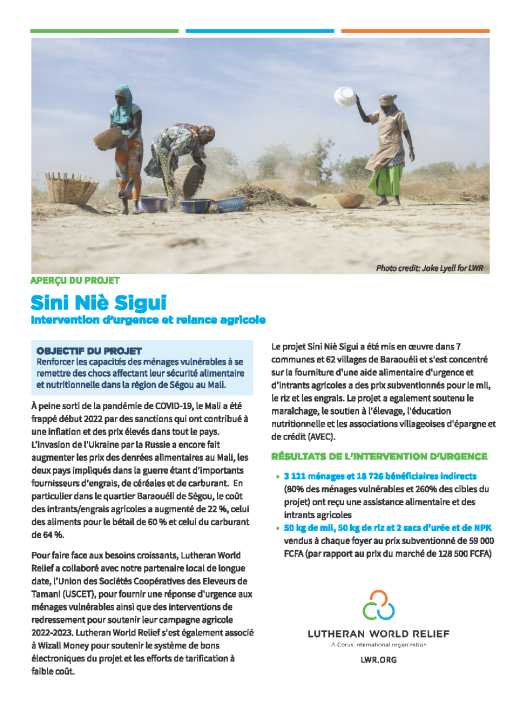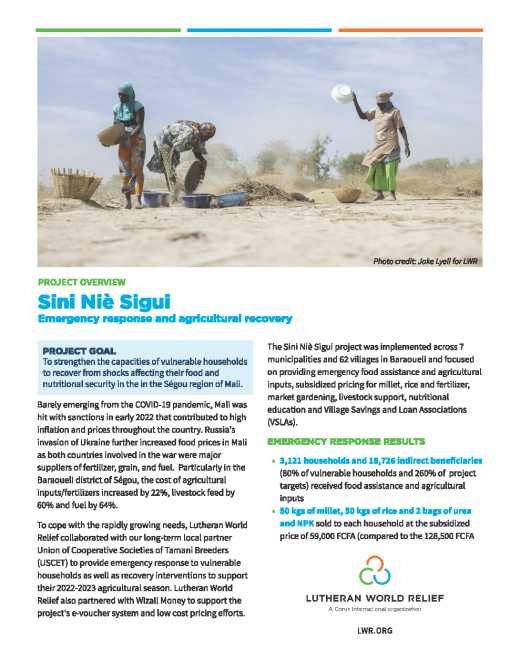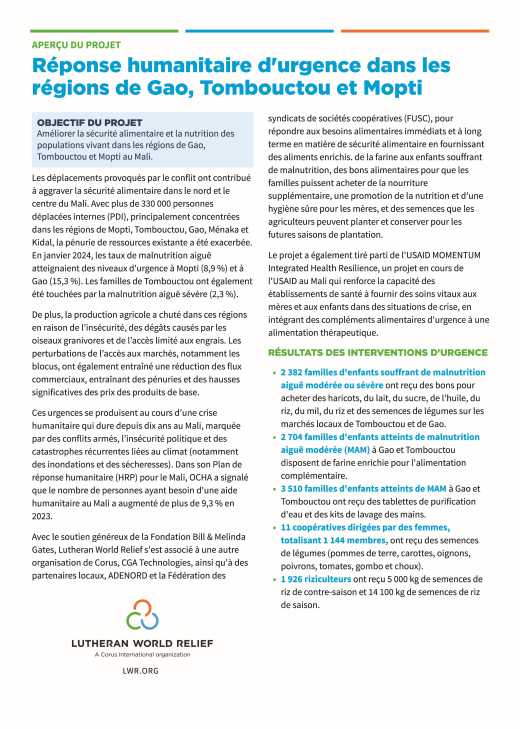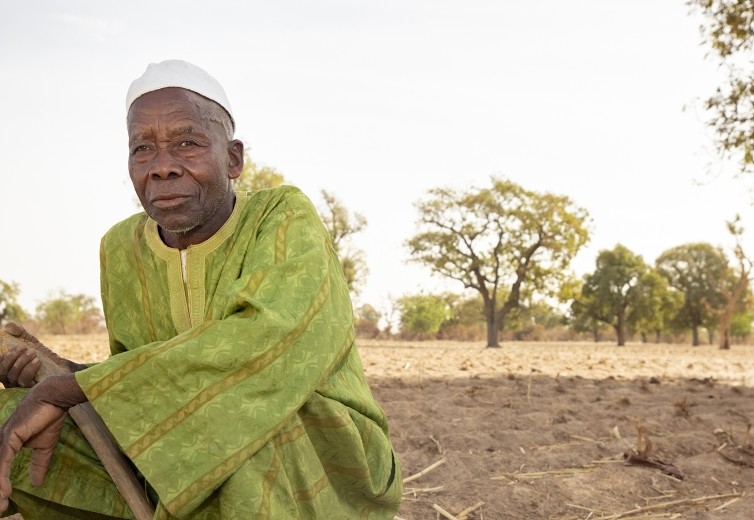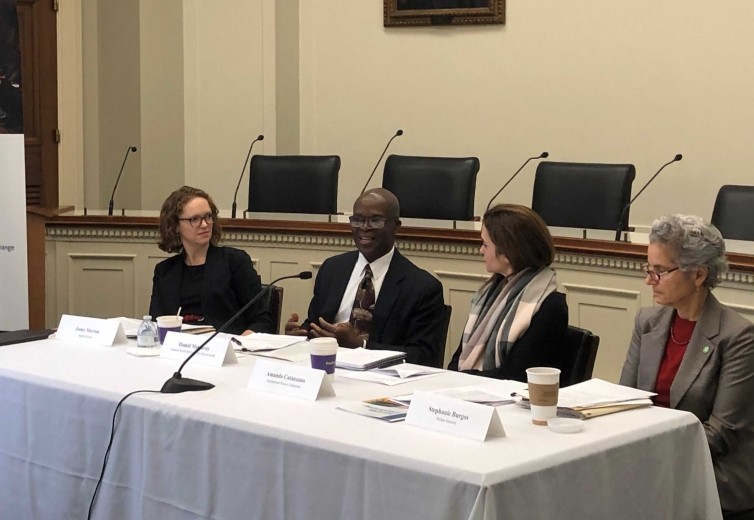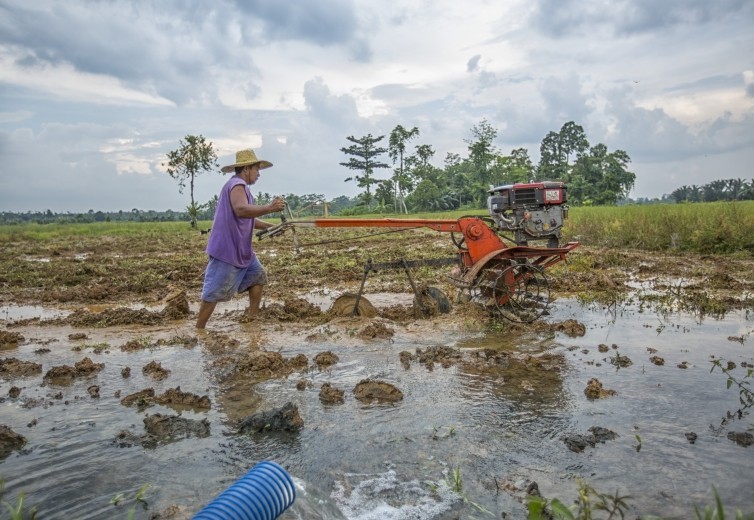Mali, like other countries in the Sahel, faces complex and multifaceted problems that continue to evolve. Droughts, floods, conflicts, and the resulting displacements have led to a deterioration in food security conditions, disrupting livelihoods and limiting access to basic services, humanitarian assistance, and markets. That is why Lutheran World Relief continues to serve in Mali in pursuit of our mission to put an urgent end to poverty, suffering and injustice wherever they afflict humanity, with passion, partnership and sustainable expertise.
Lutheran World Relief began working in Mali in 1986 to address drought-related famine and continues to partner with rural communities to address the root causes of poverty and lay the groundwork for greater food and nutritional security. We center our current programming on resilient livelihoods by improving local agricultural production and promoting equitable access to resources to ensure rural families can withstand the new realities of climate change. In times of emergency, we work with its national, district-level and local partners to address immediate life-saving needs and longer-term recovery with interventions that build future resilience and sustainable livelihoods. We also bring the integrated expertise of our fellow Corus International organizations, including IMA World Health, to holistically address the interconnected challenges of poverty, health care access and climate change in Mali. We currently work in the Mopti, Ségou, and Sikasso regions of Mali and have local partners in Gao and Timbuktu.
PROJECT HIGHLIGHTS
With funding from the Evangelical Lutheran Church in America (ELCA), Lutheran World Relief and local partner Union Locale des Sociétés Coopératives de Producteurs de Maïs (ULSCPM) support the nutritional needs and build the resilience of displaced households and host communities in the Sikasso Circle (Sikasso Region in Mali) experiencing food insecurity to prevent them from resorting to negative coping mechanisms. The project is targeted to reach 1,500 vulnerable individuals, including children under five as well as pregnant and breastfeeding women within IDP sites.
In collaboration with local partners ADENORD and FUSC, Lutheran World Relief is improving food security and enhancing the nutrition of populations living in the regions of Gao, Timbuktu, and Mopti. The project, which is funded by the Bill & Melinda Gates Foundation, is providing children (0-59 months) and women with lifesaving food and nutritional supplementation.
The USAID Kènèya Nieta Activity increases the capacity of Malians in Segou, Sikasso, and Mopti to plan, finance and manage their own health at the individual, household, and community levels. The activity, which is funded by the United States Agency for International Development (USAID) and led by the University Research Co, LLC (URCC), also increases individual and household adoption of healthy behaviors and demand for and use of health services to sustainably reduce maternal, neonatal, and child (MNC) mortality. Lutheran World Relief 's fellow Corus organization IMA World Health is part of the implementing consortium of this activity.
Lutheran World Relief's fellow Corus organization IMA World Health leads the five-year, USAID-funded MOMENTUM Integrated Health Resilience program, which is part of a suite of innovative MOMENTUM awards designed to holistically strengthen quality voluntary family planning, reproductive health, and maternal, newborn, and child health in host countries around the world including DRC, Burkina Faso, Mali, Niger, South Sudan, Sudan, Benin, Haiti, Tanzania, Mozambique, and Yemen. Working alongside local organizations, governments, and humanitarian and development partners in fragile settings, the project helps accelerate reductions in maternal, newborn, and child illness and death by increasing the capacity of host country institutions and local organizations—including new and underutilized partners—to introduce, deliver, scale up, and sustain the use of evidence-based, quality care.
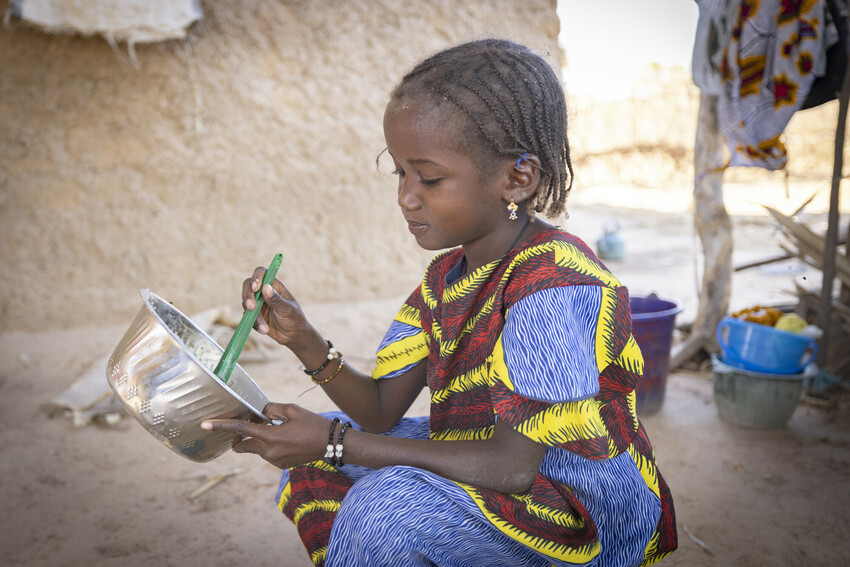
The Corus Effect
Lutheran World Relief is part of Corus International, an international development organization that unites an array of nonprofit organizations and businesses, each with specialized expertise — from health to technology to economic development to emergency response. Alongside communities and local partners in fragile settings, our expert teams integrate disciplines, approaches and resources to overcome poverty and suffering for those living in the world’s toughest and most difficult circumstances. Our traditional and nontraditional approaches bring together the multi-dimensional, holistic solutions needed to truly achieve lasting change.
Corus features global public health leader IMA World Health, international development and aid organization Lutheran World Relief, technology for development consultancy CGA Technologies, impact investing firm Ground Up Investing, and direct-trade company Farmers Market Brands.



